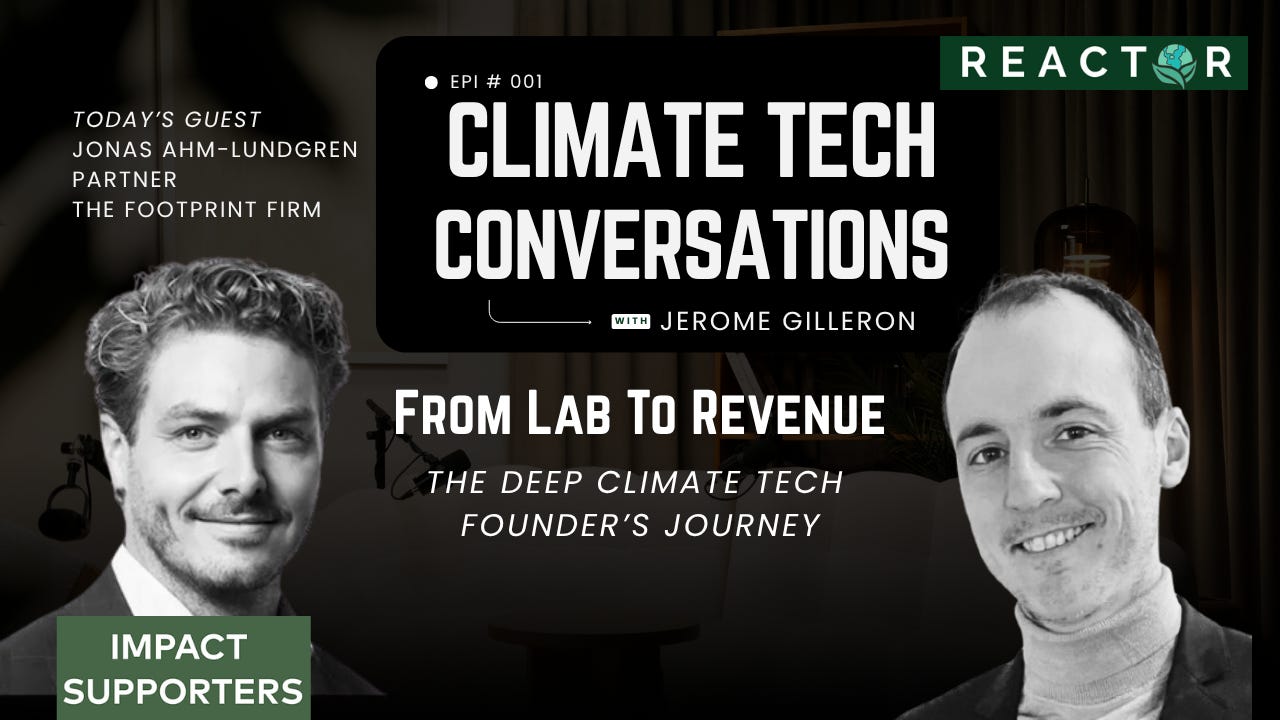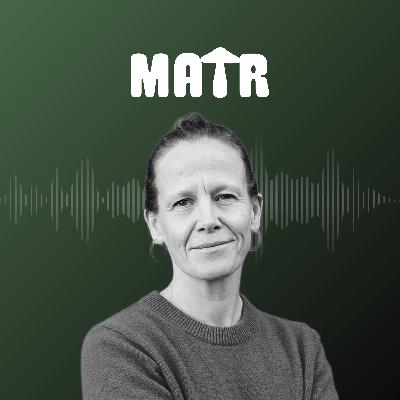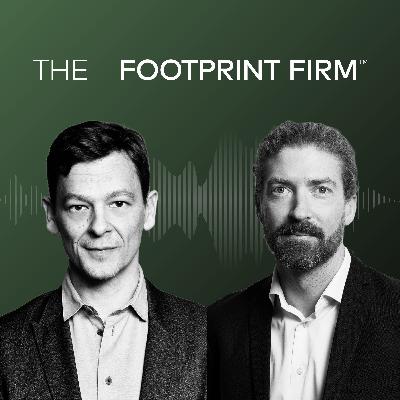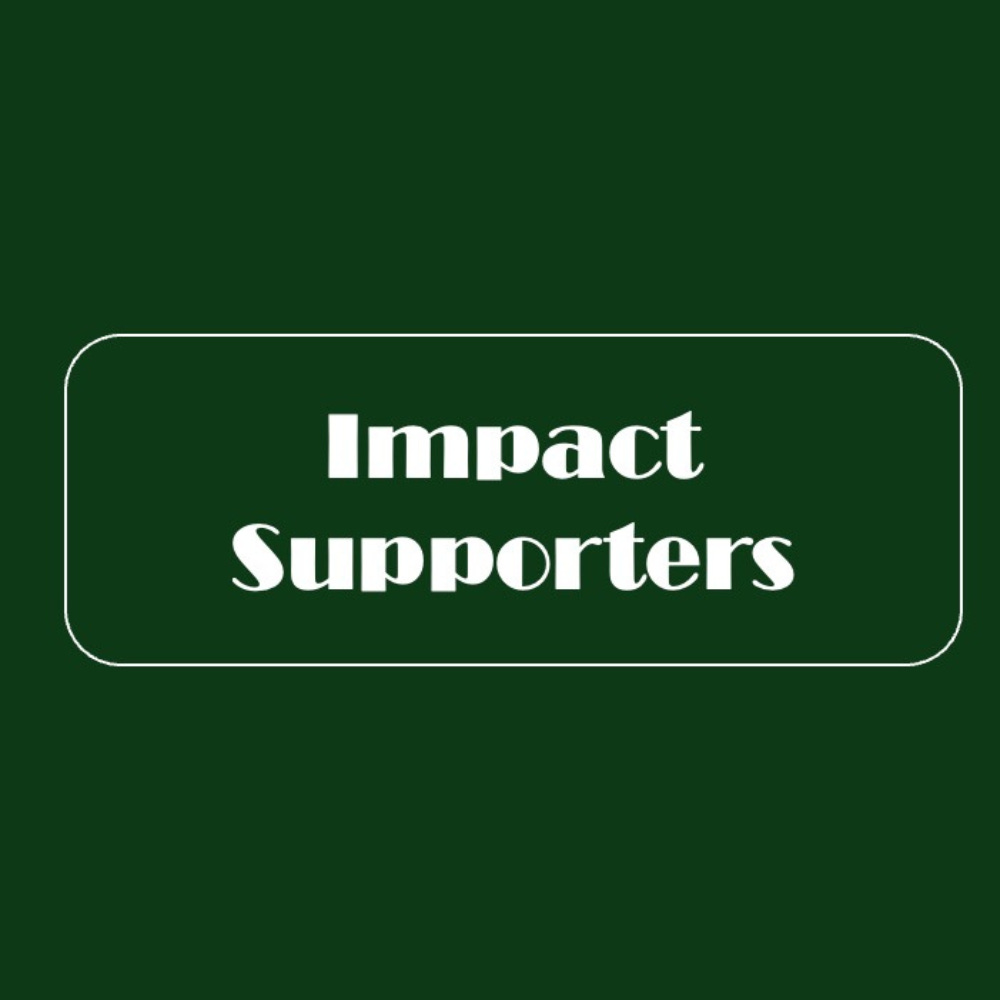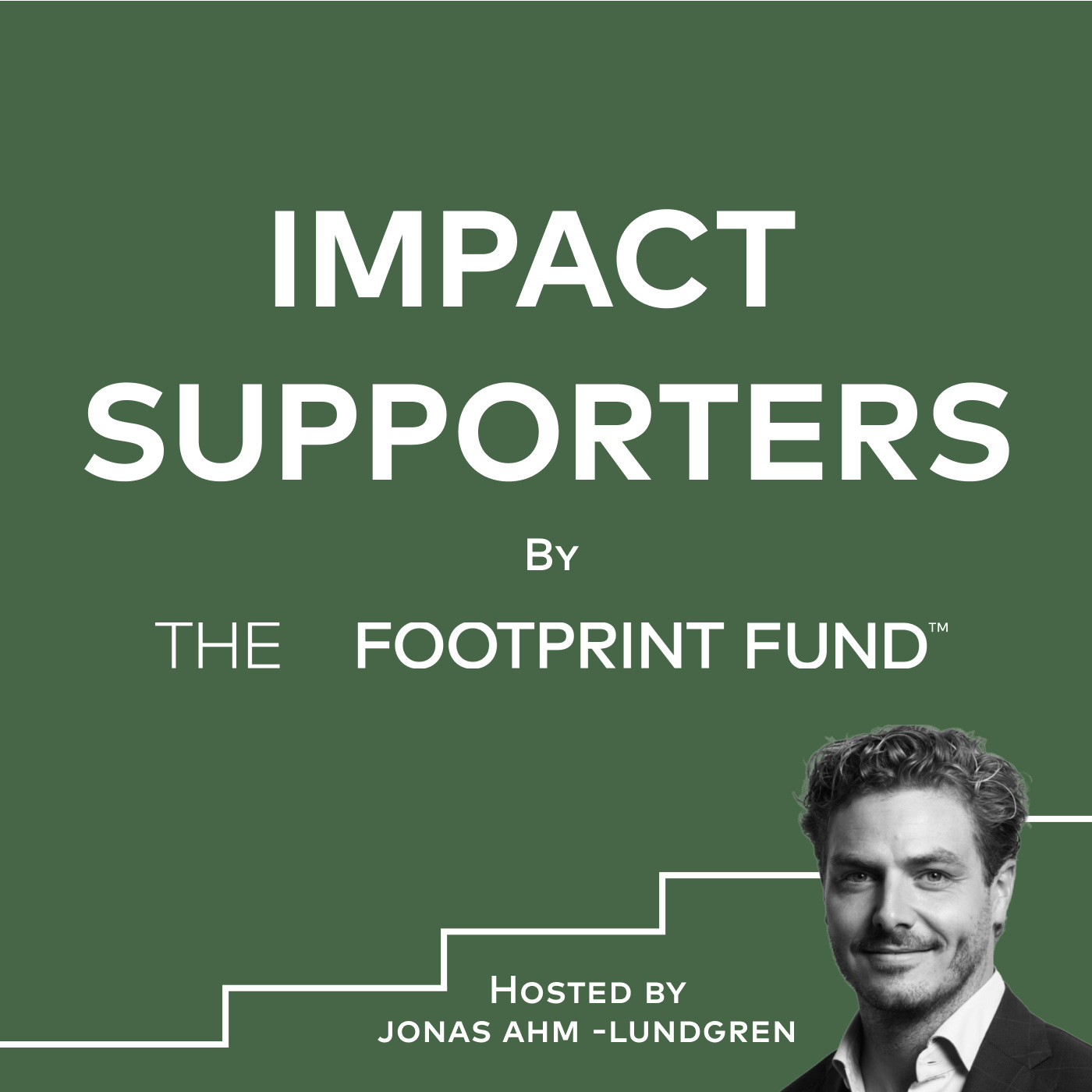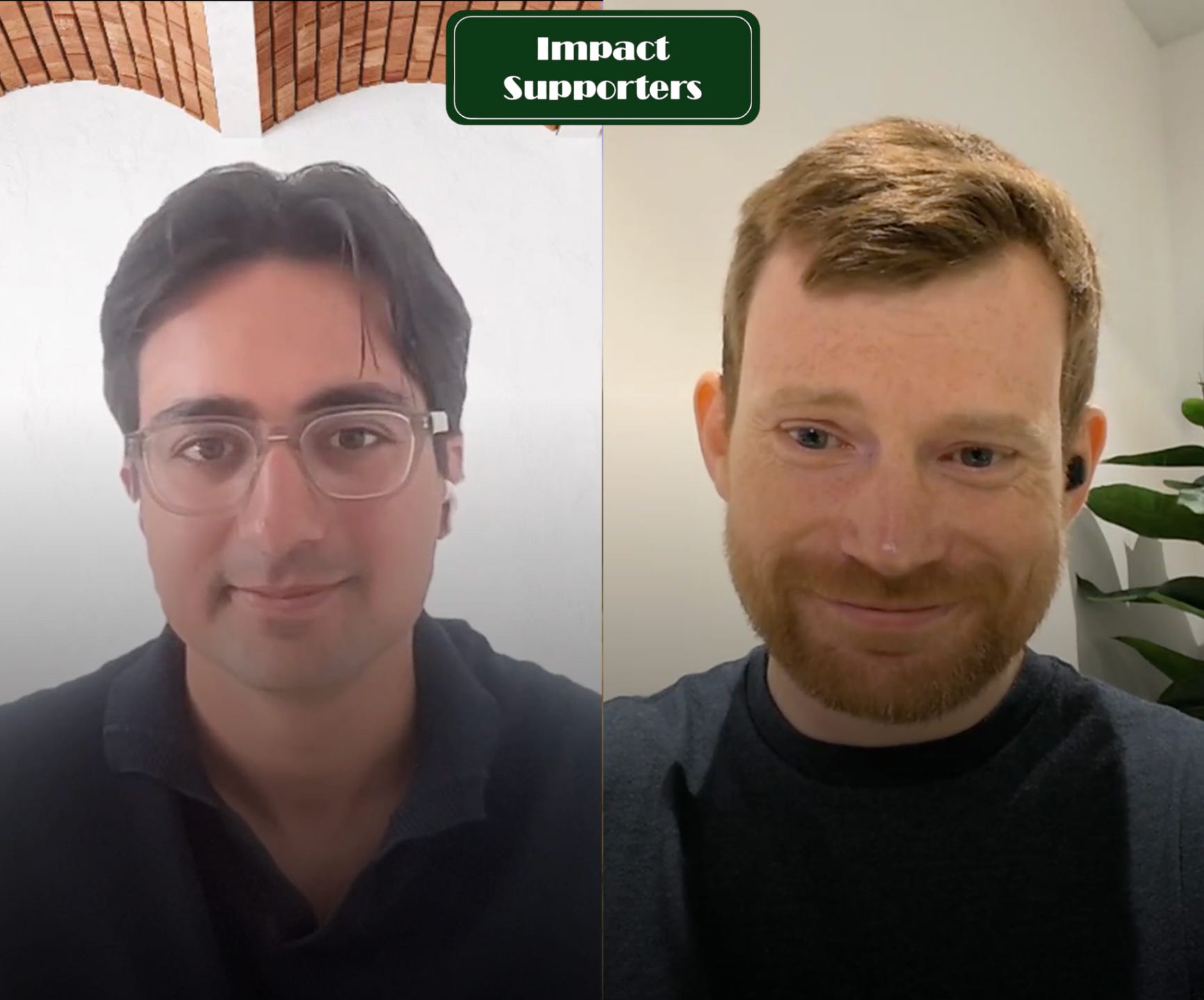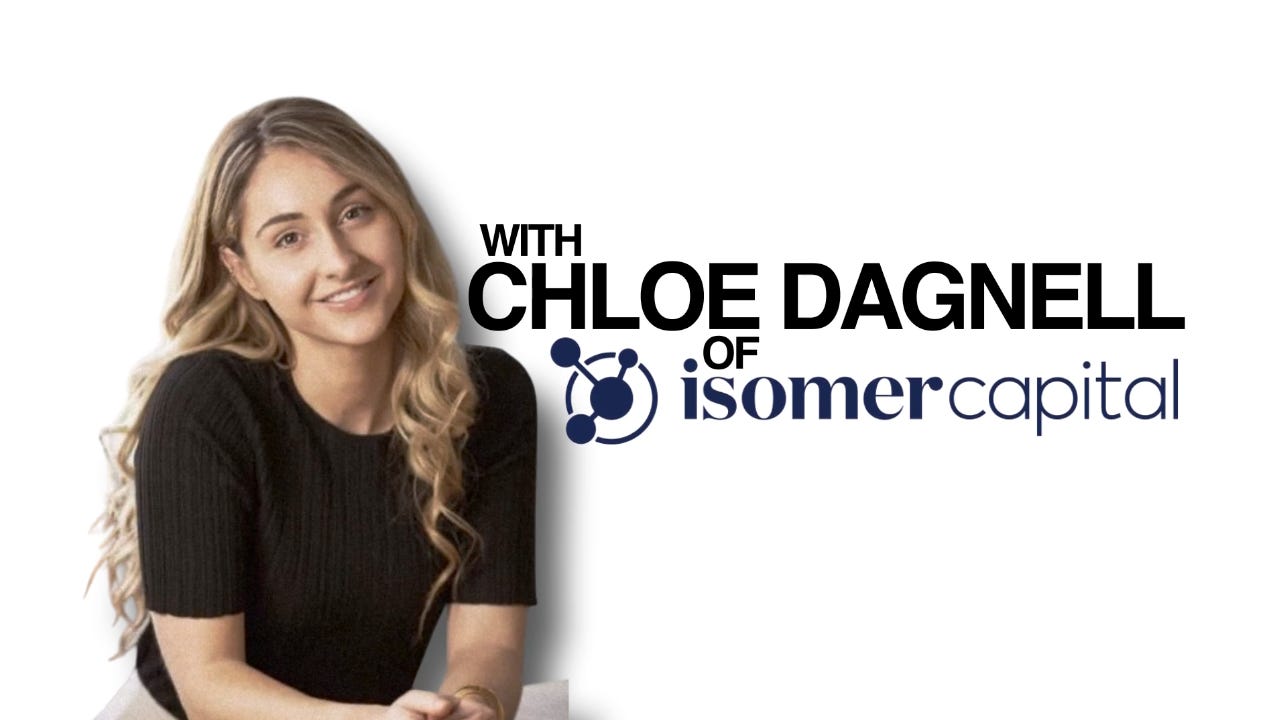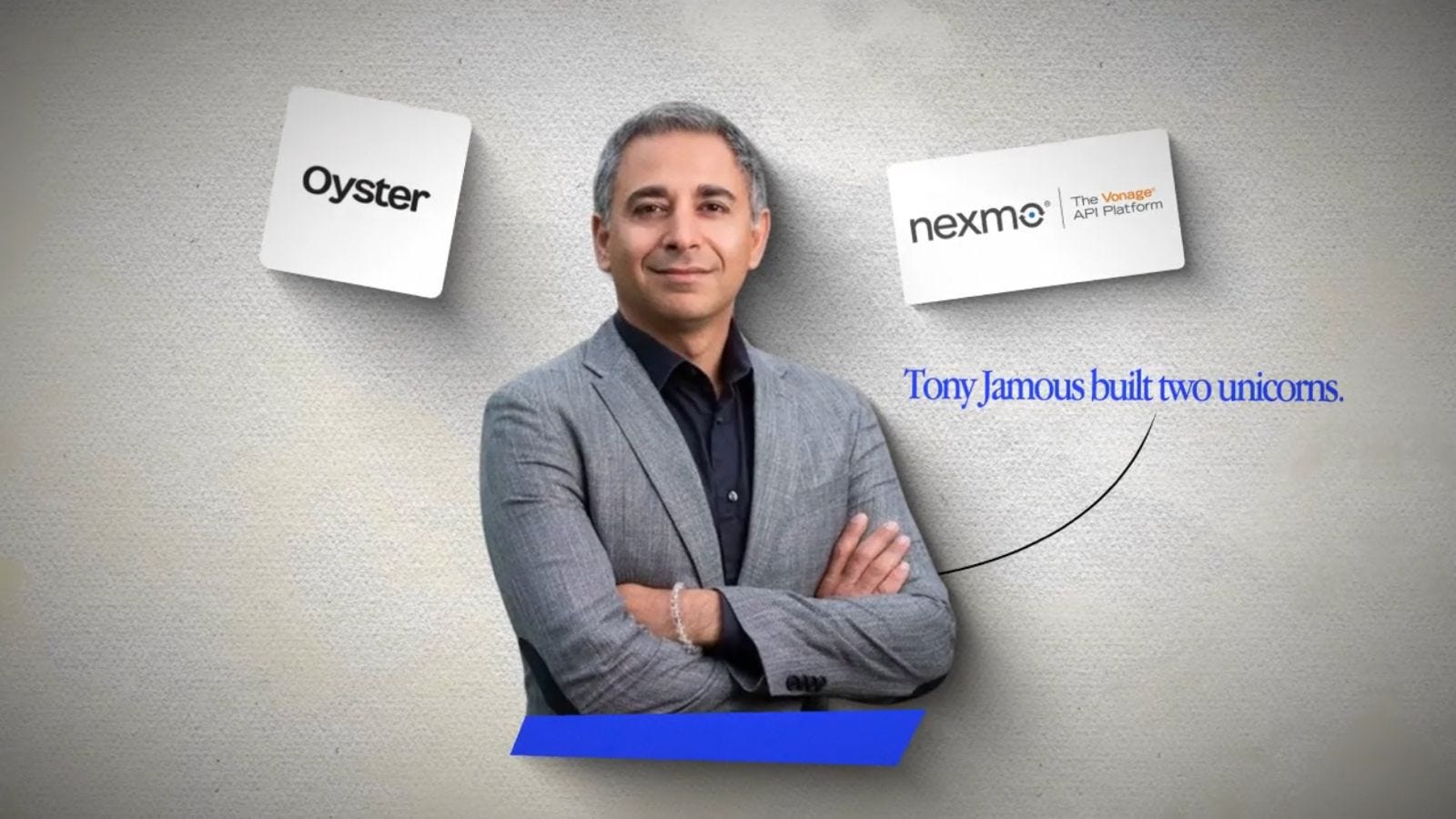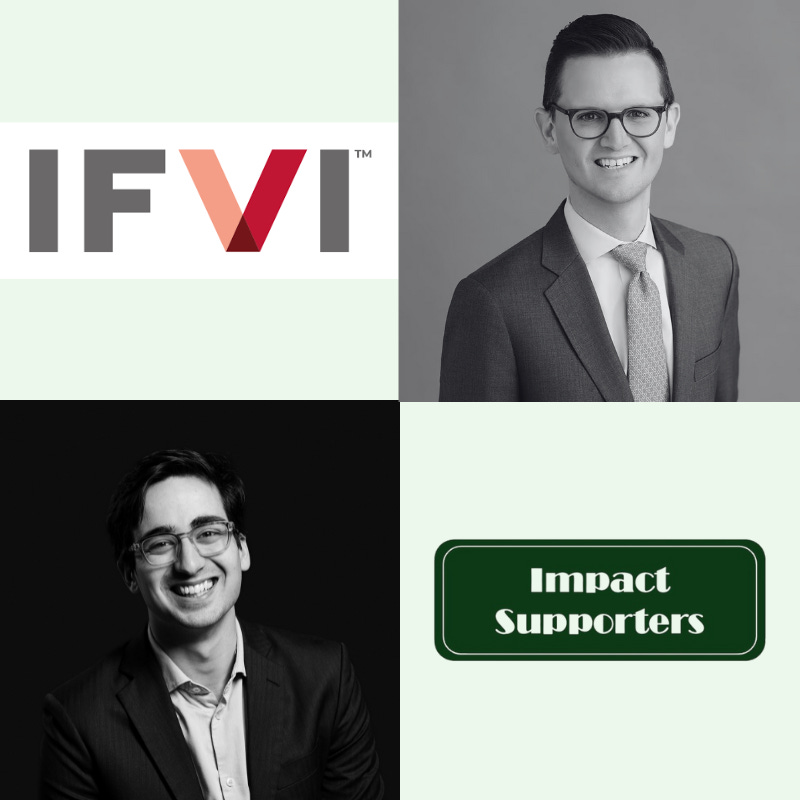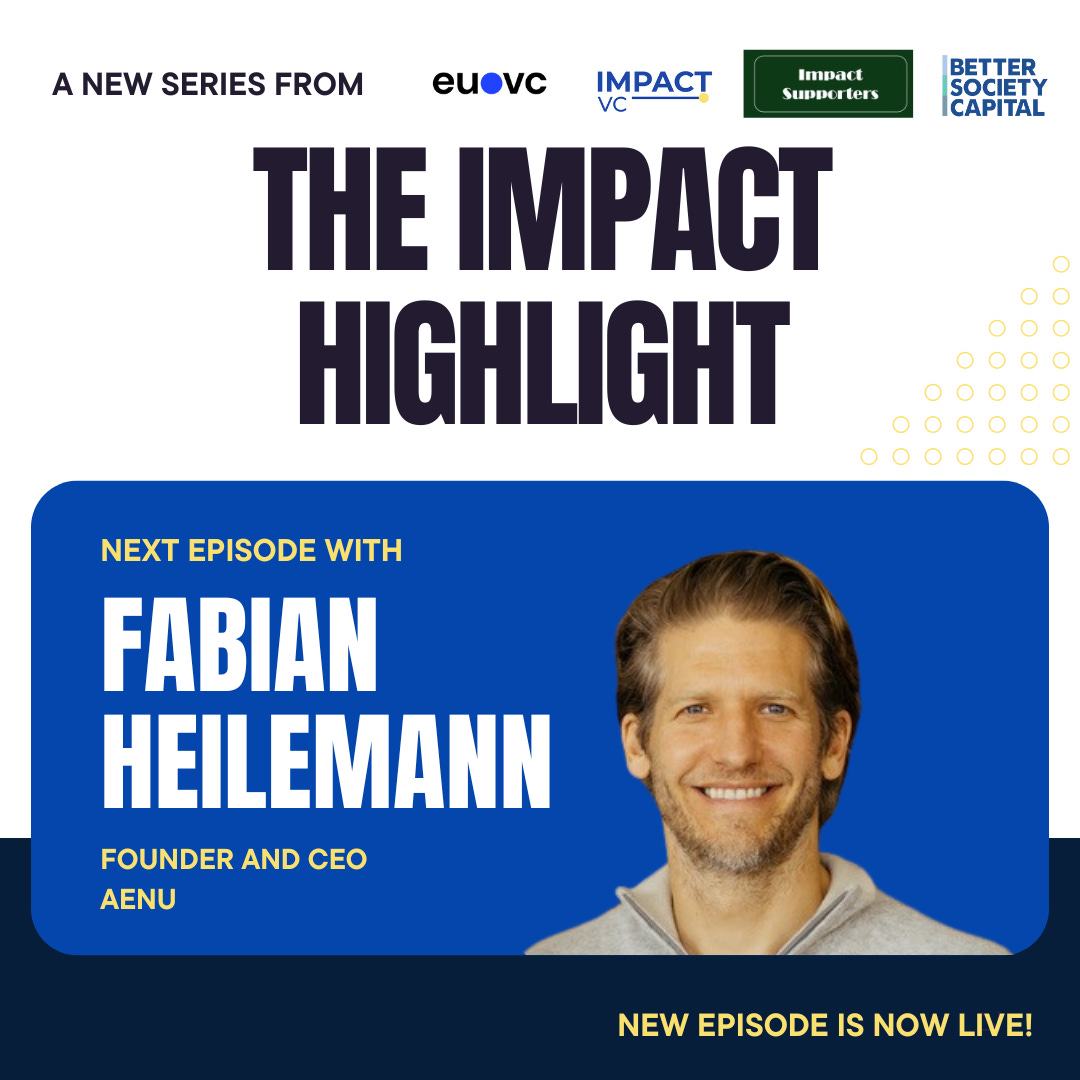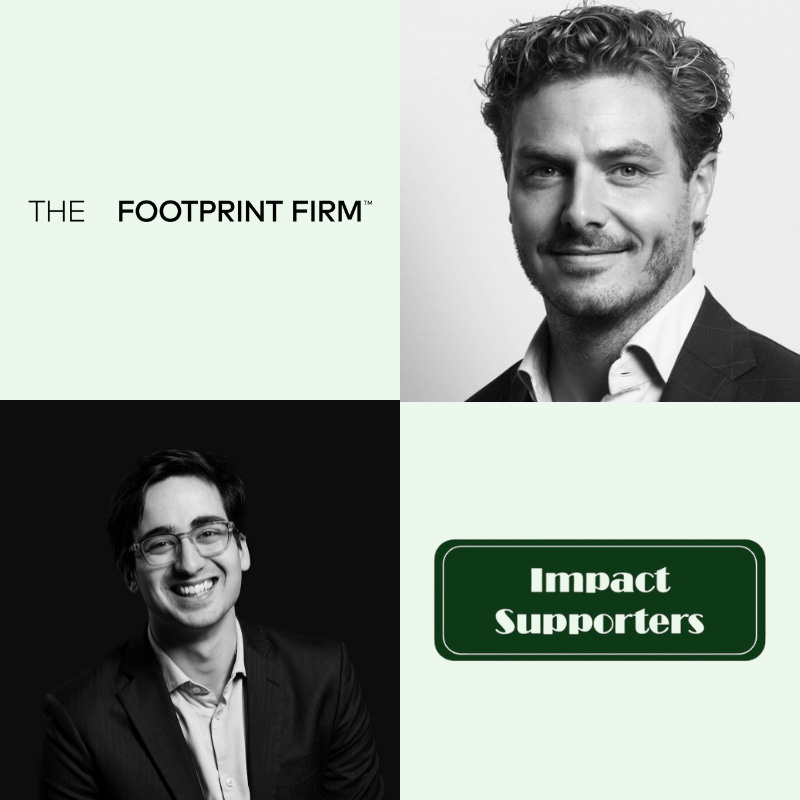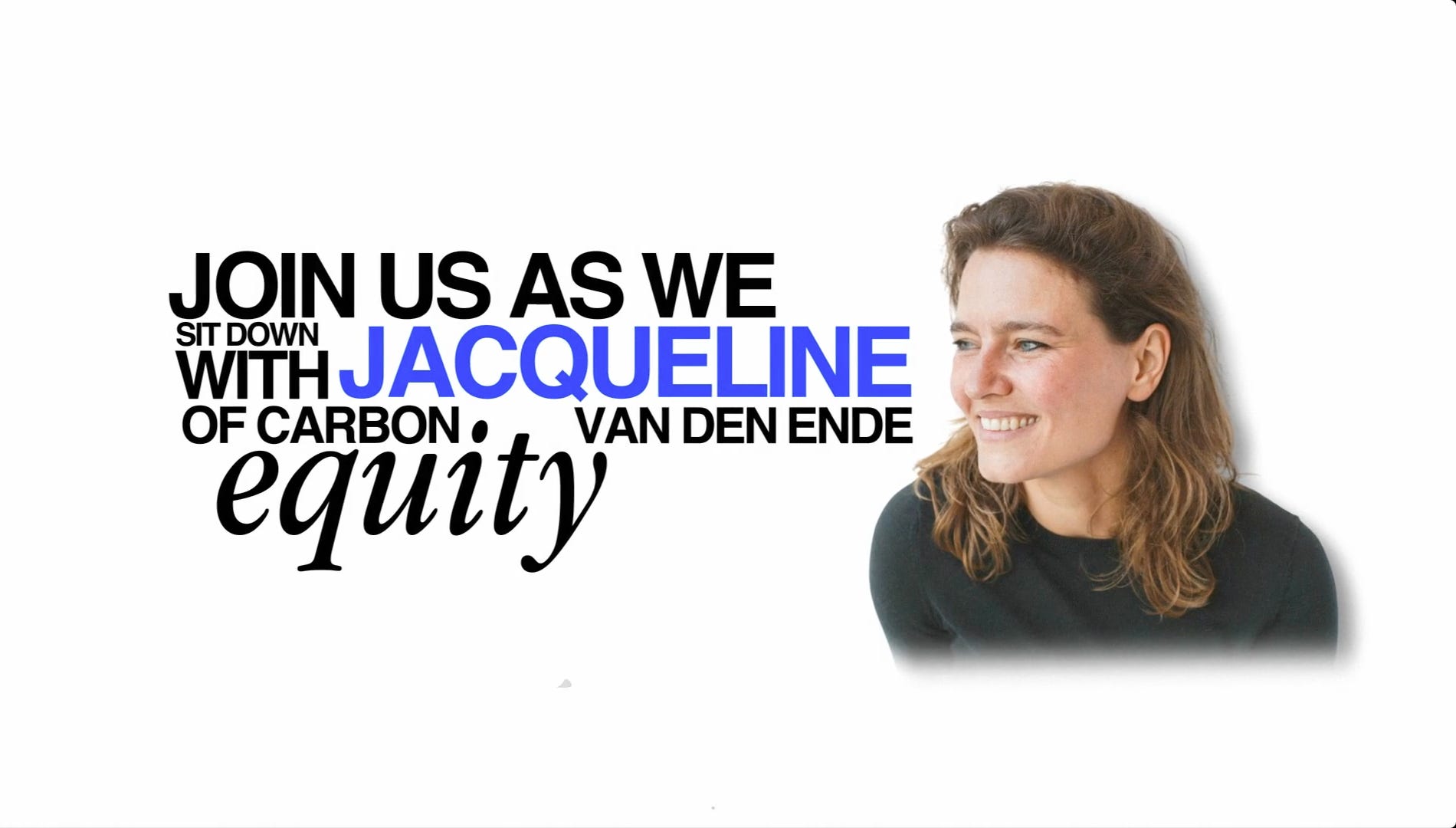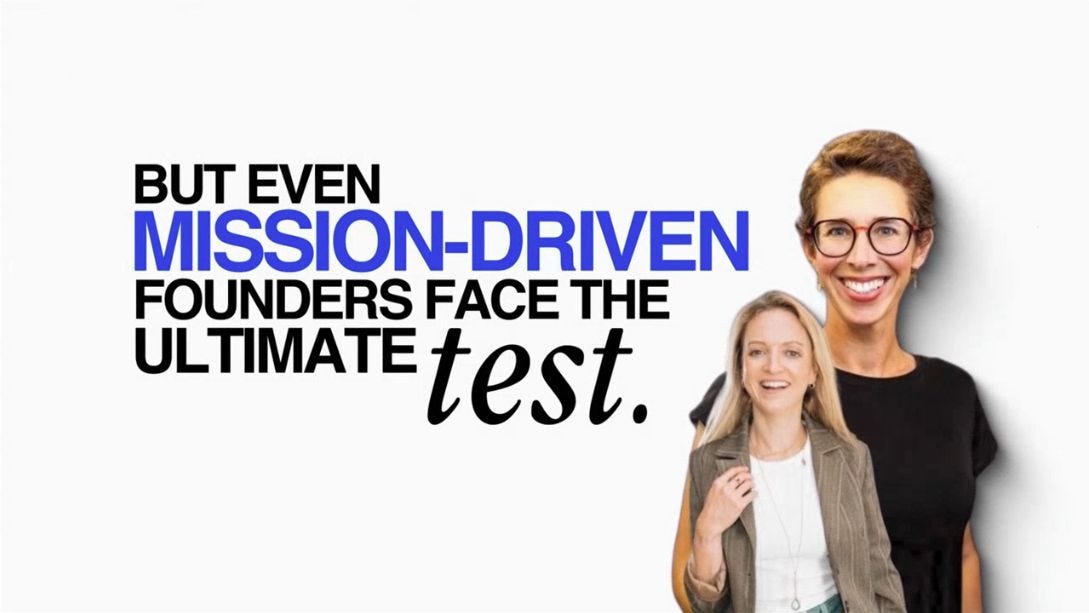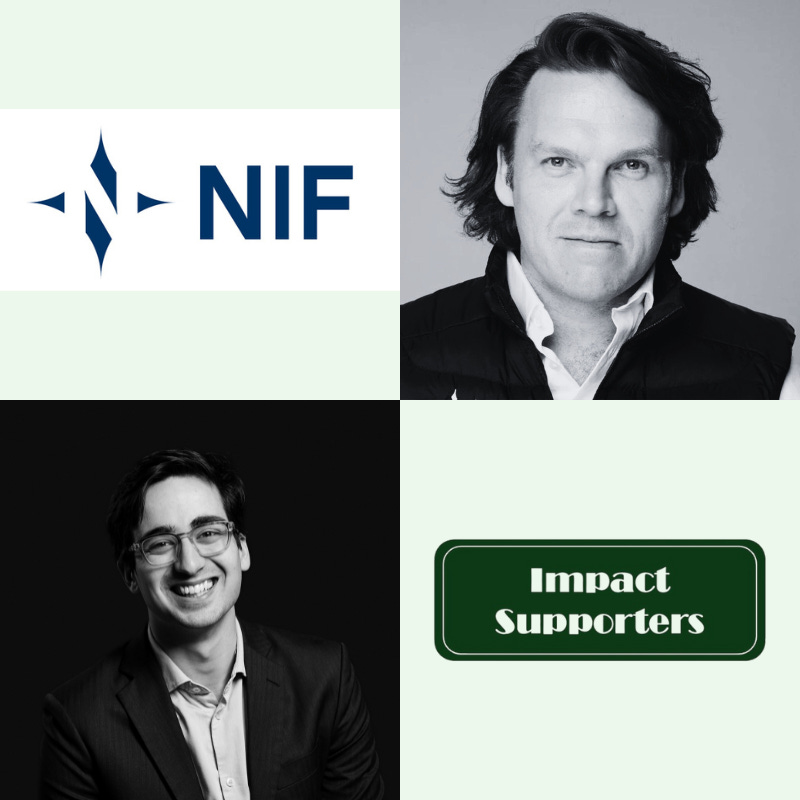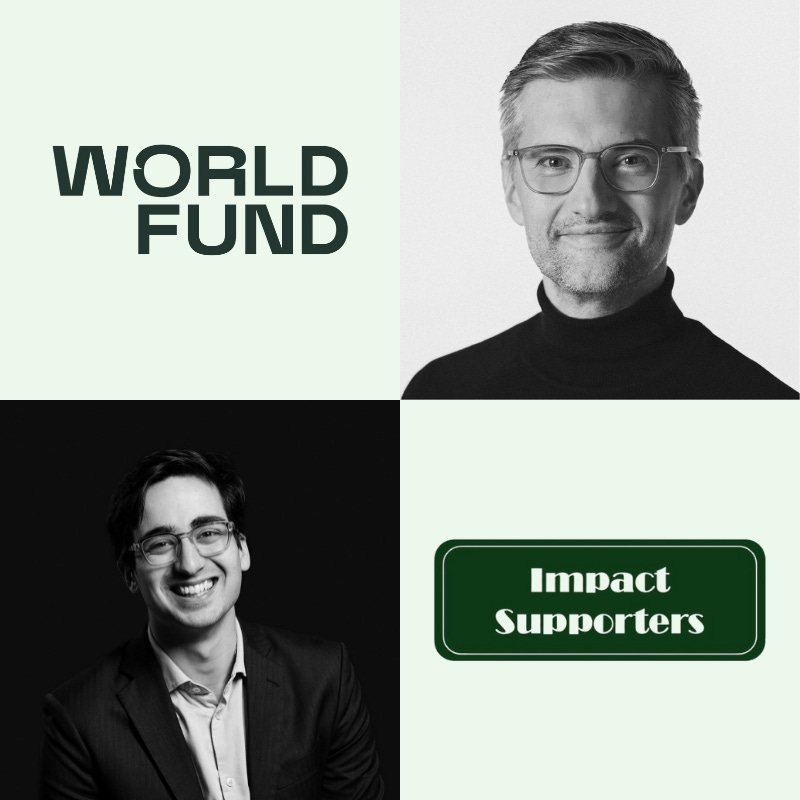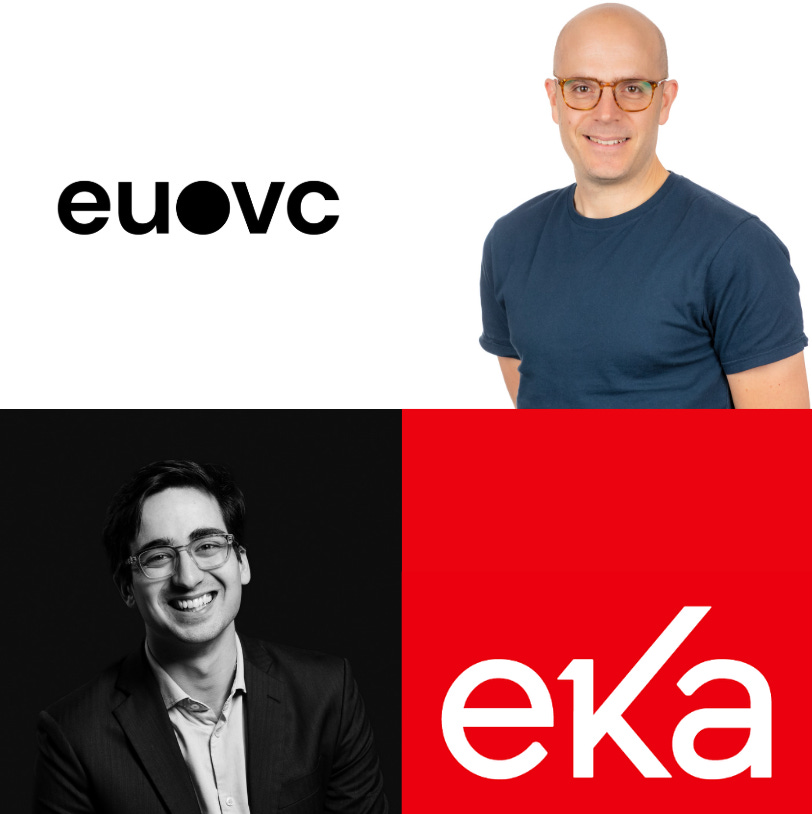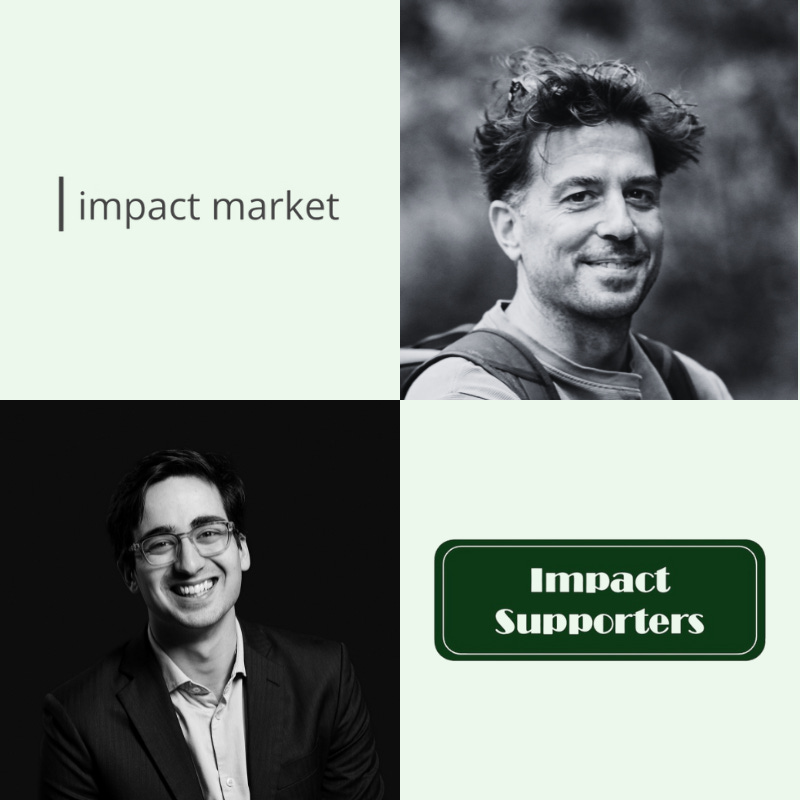Discover Impact Supporters
Impact Supporters

Impact Supporters
Author: The one podcast purely dedicated to impact VC
Subscribed: 0Played: 0Subscribe
Share
© The Footprint Firm
Description
Weekly podcast and newsletter with deep-dives, reflections, research, and interviews on key topics for impact VCs
impactvc.substack.com
impactvc.substack.com
29 Episodes
Reverse
Greetings to 3,000+ Impact Supporters! 🌍 This is Jonas writing 👋 Today, we’re talking about private equity in a way you might not expect: as a force for impact.Private equity usually gets a bad rap for being all about profits, but what if it could be a driver of change? That’s exactly what Summa Equity are doing in Europe. In this episode, we talk to Emelie Norling to explore how impact can move from an afterthought to becoming the core of investing.From theory of change to hands-on ownership, we cover it all. Let’s dive into impact PE with Summa Equity.📋 What’s Inside💡 From Law to Impact – Emelie’s path from academia to Summa Equity🦁 Taming the Lion – How private equity can meet purpose 📈 Beyond the Hype – The evolution of impact PE returns ⚙️ Inside the Machine – How Summa builds their theory of change 🌍 A Broader Lens – Why climate is just one piece of the puzzle 🔌 Bridging the Gap – What start-ups can learn from buyout impact thinking👩💼 Meet Emelie NorlingEmelie’s journey into impact is anything but linear. She began in academia, studying how global institutions interpreted the early idea of sustainable development. Her world at that time revolved around legal arguments, institutional frameworks, and dense academic debates 📚“It was fascinating,” she recalls, “but it felt distant from the places where decisions were actually made.”That desire to get closer to the action brought her into asset management, where she led responsible investment for a Swedish insurer. Eventually she found her way to Summa Equity, where she now plays a central role in shaping one of Europe’s most thesis-driven impact platforms 🌱At Summa, Emelie helps define impact investment themes, guide due diligence, connect leadership teams around impact roadmaps, and ensure that the fund’s commitments to its investors translate into measurable, transparent outcomes. Her work is defined by a belief that finance, and societal progress can be aligned without compromise, as long as investors are willing to commit to real depth and discipline.💡 From Law to ImpactWhen Emelie first heard of Summa, she nearly dismissed it. Private equity seemed far removed from the values she had spent her career exploring.Yet her perception shifted dramatically during a single Investment Committee meeting. A partner began by describing the societal problem, the system it belonged to, and the levers for changing that system 🌍 For the first twenty-five minutes, the discussion was solely about impact. Only after that did they open the financial model.“It wasn’t impact as an afterthought,” she says. “It was the reason the company deserved to exist.”This moment revealed a surprising overlap between her academic past and the world of private equity. Unlike public markets, private equity owns companies outright. It can reshape governance, guide strategy, and invest in long-term transformation. Suddenly the leap made sense, and the unlikely path became her calling.🦁 Taming the LionImpact and private equity once felt like natural opposites, like a lion ordering a salad for lunch. But over the last decade, firms such as Summa, TPG Rise, and Trill Impact have rewritten that narrative. In 2016 the question was whether returns were even possible with impact. In 2021, anything that looked sustainable was overhyped and overvalued. Today, she says, the industry has entered a more grounded period.“The hype is over, and that is healthy,” she explains. “It reveals which strategies were built around real impact and which ones were simply wrapped in the language of it.”The lesson is clear. A strong impact story does not automatically make a strong business. It still requires discipline, thoughtful diligence, and the courage to face difficult trade-offs when they arise 🔍📈 Beyond the HypeA recent study from Schroders in collaboration with Oxford University’s Business School showed that impact PE funds averaged 21 % IRR, outpacing the wider industry.Source: Schroders Capital“If you invest in companies solving society’s biggest challenges, it makes sense that they perform well. These are the businesses the world needs.”Ignoring impact is becoming the real risk. Climate shocks and geopolitical uncertainty make this lens essential.⚙️ Inside the Machine: Theory of Change in ActionSumma’s approach to impact begins with a simple question. What societal problems are most in need of solutions, and which business models can help solve them?Each of Summa’s themes starts with a detailed theory of change. The team maps the system, identifies leverage points, and explores which types of companies possess the most transformative potential 📈“We bring together academics, industry experts, investors, and impact professionals,” Emelie explains. “That mix creates roadmaps that are directionally correct — and commercially grounded.”Once an investment is made, the collaboration deepens. The deal team and impact team run workshops with company leadership to align on the theory of change and build a sustainability roadmap.“It’s powerful,” Emelie says. “Founders see how their company fits into a bigger picture. That connection motivates teams far beyond compliance.”🌍 A Broader LensI asked Emelie to share her thoughts on Bill Gates’s recent essay on “Three tough truths about climate,” and she agrees that climate must be viewed through a wider systems lens 🔍“If we only focus on carbon, we won’t solve climate change. It’s about biodiversity, equity, and human well-being — because the planet will survive. The question is whether it will remain habitable for us.”Her view reflects Summa’s investment philosophy: climate challenges sit inside a wider web of ecological and social issues, and any attempt to solve them must reflect that interconnected reality 🕸️🔌 Bridging the GapScaling innovation is always challenging. Venture-backed companies often generate the innovations needed for transformation, and buyout-stage firms have the scale to bring those innovations to the world 🌉 Yet the bridge between these two worlds is fragile.FoodTech is a powerful example. Emelie describes how often she sees brilliant ideas in alternative proteins or food waste reduction that struggle to cross into the buyout universe.“We need to support these companies so they can scale into our world,” she says. “Food is one of the biggest systems we can transform.”She shares the story of a Croatian fava-bean protein company that doubled farmer yields by simply improving their seeds 🌱 A small intervention produced enormous positive consequences, illustrating how outsized impact can emerge from innovations that seem simple at first glance.Thanks for reading Impact Supporters! Subscribe for free to receive new posts and support my work.✨ Closing ThoughtsEmelie leaves us with a reflection that feels timely for the entire field of impact investing. Measurement is essential, she says, but imagination matters just as much. It is not enough to calculate what exists today. We must have the courage to picture what could exist tomorrow 🌏Her own path, from legal theory to investment committees, shows how change often comes from people who can see across disciplines and aim to bridge worlds. The future of impact investing will belong to those who combine rigor with creativity, who can build systems where energy is clean and affordable, food is sustainable and secure, and economic growth no longer requires ecological decline 🌿Private equity has the potential to become one of the great engines of the green transition. Emelie’s work reminds us that transformation does not come from grand gestures alone. It comes from the steady, thoughtful decisions that shape companies’ day by day, and from the people willing to steward that change from the inside out.As we close out the year, this feels like the right message to carry with us🌟Imagination, patience and steady progress are the work ahead. Before we wrap, this conversation with Emelie is also our last one of the year and what a note to end on! We’re taking a short festive break to rest, recharge and dream a little bigger.Thank you for being part of this growing community. Your curiosity, feedback and support are what make Impact Supporter worth building 🙏💚 Wishing you a season filled with slow moments, good conversations and time to reconnect. We look forward to bringing new voices, new ideas and new impact stories in January 2026 🌍✨📥 Tell Us What You Think: Can private equity become the driving force of the green transition? Reply to this newsletter or drop us a note at ImpactSupporters@thefootprintfirm.com.👋 Thanks for reading,JonasLinks to articles/data mentioned:Schroder, 2025Gates, 2025Thanks for reading Impact Supporters! This post is public so feel free to share it. This is a public episode. If you would like to discuss this with other subscribers or get access to bonus episodes, visit impactvc.substack.com
Greetings to 3k+ Impact Supporters! 🌍 It’s Jonas Ahm-Lundgren 👋 This week’s episode is a little different. Instead of hosting, I join Jerome Gilleron as a co-host/guest on the Reactor Podcast, and it turned into one of the most thoughtful conversations I have had in a long time about early-stage climate tech, founders, and the communities that support them.Jerome has built Reactor as a space where deep tech and climate converge, away from the hype cycles, clickbait, and AI-driven noise. We talk about ambition, feedback, storytelling, and the subtle art of moving fast without losing direction.Thanks for reading Impact Supporters! Subscribe for free to receive new posts and support our work.📋 What’s Inside🌱 Anchoring Purpose - Why climate communities can give founders clarity and momentum 🚀 From Pre-seed to Series A - Understanding the leap and why so many misjudge it 🧪 Proof of Customer - Why early demand beats technical proof 🎯 Pitching to Strangers - The underrated superpower for early founders 🧭 Feedback That Helps - Learning who to listen to and when 🌋 Ambition with Grounding - Thinking big while staying disciplined 🗣️ Human Storytelling - Why authenticity will always matter more than AI 👋 Meet Jerome GilleronWith a background in technology and entrepreneurship, Jerome Gilleron has spent years building and advising early-stage start-ups. He is the founder of Reactor, a climate-tech and deep-tech community connecting founders, investors, and experts to tackle the challenges of scaling impactful companies 🌍 Jerome is passionate about creating spaces that prioritize clarity, collaboration, and long-term impact in the fast-moving world of climate innovation.🌱 Why the climate community can give founders clarity and momentumJerome explained that Reactor became focused on climate and deep tech partly because the broader tech discourse kept drifting into hype cycles. Climate, by contrast, demands patience, precision and storytelling that respects complexity.He put it well:“You can’t cover climate like a trending topic. You need to treat it like a long-term craft.”For him, Reactor is more than a network. It is an anchor in a world where attention is scattered, and hype can drown out substance. Climate solutions need patience and nuance, and communities help create the conditions where both can thrive 🌿I have seen the same dynamic in Impact Supporters. People come here because they want to engage with ideas that matter. They bring curiosity, humility, and a desire to learn. That kind of shared intention creates clarity. It helps founders filter noise from signal and make decisions with more confidence.Jerome calls this “staying close to what matters.” For me, it captures the heart of what these communities do. They create a place where founders can think deliberately, ask better questions, and move forward with a steadier hand 🛠️🚀 Understanding the leap and why so many misjudge itA theme that comes up again and again is how often founders misjudge the leap between funding stages. At pre-seed, a working prototype feels like momentum. By seed, investors want early commercial traction. At Series A, they expect evidence of real market pull.Both Jerome and I have seen the same pattern. Founders sometimes get lost in technical validation without asking the harder question: does anyone actually want this? 🤔The teams that tend to scale understand something crucial. They think about demand from day one. They talk to potential customers. They test assumptions. They move quickly from theory to interaction. That shift in mindset often determines whether a company grows or stalls. 🧪 The underrated superpower for early foundersFor Jerome, proof of customer is far more powerful than proof of concept. Real engagement, interest, or willingness to pay tells a clearer story than any lab result or performance spec.I have watched this play out many times. Teams that embrace customer conversations early move faster. They make sharper decisions. They communicate their vision with confidence because they have felt the pull from the real world.Proof of concept is a promising beginning. Proof of customer is the momentum that carries a company forward 🚀🎯 The underrated superpower for early foundersJerome has a deceptively simple exercise he recommends to early founders: take your idea to strangers. Not to sell, but to listen.It is humbling. It is messy. And it tends to reveal things that nothing else will. People who owe you nothing give you pure, honest feedback. They surface confusion you didn’t see, highlight what resonates, and expose assumptions you didn’t realize you were making 📝Founders who lean into this discomfort learn faster. Their messaging sharpens. Their conviction grows. Most importantly: they discover the language that connects their product to the real world.🧭 Learning who to listen to and whenFeedback is everywhere. Investors, mentors, advisors, and even customers have opinions, and a founder trying to take every voice seriously quickly gets lost in noise.Jerome stresses the value of curating a small circle of trusted voices. A handful of people whose experience, honesty, and alignment matter. Once that circle is in place, the next step is action. Even with incomplete information, decisive execution aligned with your mission beats hesitation every time⚡It is the discipline of staying flexible while keeping your center of gravity.🌋 Thinking big while staying disciplinedAmbition alone is not enough. The founders who tend to succeed combine sharp vision with careful pacing. They hire thoughtfully. They scale deliberately. They stay focused on the handful of priorities that matter most 🎯This grounded ambition becomes a stabilizing force. It allows teams to adapt to uncertainty without losing momentum. It creates a culture where progress feels both steady and meaningful.Real impact is rarely explosive. More often, it is built through consistency, clarity, and disciplined execution.🗣️ Why authenticity will always matter more than AIEven in an era flooded with AI-generated content, storytelling remains profoundly human. Empathy, curiosity, lived experience — these are the qualities that shape narratives people care about 🤝In climate tech, storytelling becomes a bridge between complex problems and the people working to solve them. It helps teams communicate not only what they are building but why it matters.Communities like Reactor and Impact Supporters preserve that human layer. They create spaces where authenticity can flourish and where founders can speak with clarity rather than choreography.Thanks for reading Impact Supporters! This post is public so feel free to share it.✨ Closing ThoughtsOur conversation reminded me that building impact is rarely a straight line. It requires the discipline to stay close to what matters, the courage to ask difficult questions, and the humility to keep learning. It also demands ambition that is grounded in reality rather than hype 💡Clarity, curiosity, and human connection — these are the tools that help founders navigate uncertainty and move with intention.Thank you for being part of this community! Impact Supporters exists because of your engagement, your questions, and your willingness to think deeply about the future we are building together Who should we talk to next? What are the big, messy questions you are wrestling with? Hit reply or send us a note — I always love hearing from you.👋Thanks for listening and reading, Jonas This is a public episode. If you would like to discuss this with other subscribers or get access to bonus episodes, visit impactvc.substack.com
Greetings to 3,000+ Impact Supporters! 🌍 This is Jonas writing 👋 In today’s episode, we sit down with Randi Wahlsten, CEO and co-founder of Matr, a Danish FoodTech startup rethinking how we eat. Matr blends taste, sustainability, and scalable impact — turning humble legumes and root vegetables into craveable, low-footprint meals without additives or over-processing.We dive into how Randi and her team are building a company where mission meets business, navigating the challenges of funding, scaling, and team-building with vision, intuition, and a touch of naïve optimism.📋 What’s Inside🧬 From Microbes to Meals – Crafting craveable, plant-based food 💡 Taste First, Tech Second – Why simplicity wins with consumers 💶 A €40 Million Leap – Scaling production and earning trust 🚀 Building a Team That Can Fly – Lessons in leadership and hiring 🌍 Why It Matters – Making impact through taste and accessibility👩💼 Meet Randi WahlstenRandi brings decades of experience in strategy, consumer goods, and food innovation. After time at McKinsey, Dalberg, and Arla, she found in Matr a way to unite her business expertise with her values. For Randi, Matr isn’t just a food company. It’s a mission. Every decision, from ingredients to hiring, is weighed against one question: does this create positive impact for people and the planet? 🌱🧬 From Microbes to MealsMatr began in an old fish factory kitchen in Denmark, a space that smelled faintly of brine and wood, where the hum of refrigerators was punctuated by clinks of metal as the small founding team experimented late into the night. Their vision was bold yet simple: turn natural ingredients into plant-based foods that taste incredible through fermentation; no shortcuts, no additives. The first prototypes were, in Randi’s words, “half-decent,” but they persisted, blending science and intuition, and inviting chefs to taste, critique, and refine.Over months of trial and error, a sensory transformation took place. Legumes that had once seemed mundane became rich, umami-packed flavours. Root vegetables that no one noticed turned into subtly sweet, savoury highlights. What emerged was more than food. It was an experience👩🍳💡 Taste First, Tech SecondEven though Matr’s process relies on cutting-edge fermentation science, their success has always started with flavour.Randi and her team discovered that no consumer would fall in love with a product simply because it’s sustainable. Taste had to lead. Early collaborations with restaurants became the proving ground. Chefs tasted, tweaked, and applauded, turning the lab experiments into dishes diners raved about. Only once the flavours won hearts did Matr bring the products to retail 🛒The lesson is simple but powerful: for sustainable food to scale, it must win over hearts (and palates) before principles.💶 A €40 Million LeapScaling food production is very different from scaling software. It’s slower, harder, and more tangible. Yet Matr’s momentum is undeniable. After consistently selling out small-batch runs and achieving chef repurchase rates above 80%, the company secured a €40 million Series A to build its first industrial-scale facility and expand internationally.It’s proof that disciplined growth, a clear vision, and a deep understanding of both product and process can win investor confidence, even in a challenging market 💪🚀 Building a Team That Can FlyRandi seeks team members who blend experience with curiosity. She hires senior professionals willing to dive into hands-on problem solving, alongside young talent eager to learn at warp speed ⚡The culture at Matr isn’t dictated from the top. It emerges organically. People don’t need to be pushed; they pull themselves forward because they believe in what they’re creating. Randi explains:“We’ve learned that you can’t outsource conviction. Everyone at Matr needs to believe in why we’re doing this; from the chefs to the engineers. That’s what keeps the mission alive when things get hard.”Conviction keeps the team motivated during long nights in the lab or when scaling challenges feel insurmountable. It’s the invisible ingredient that flavours everything they do.🌍 Why this matters for you as an impact VCMatr shows that meaningful impact doesn’t require grand gestures. It can be embedded in products people genuinely love.By combining taste, quality, and purpose, Matr demonstrates that the plant-based revolution doesn’t need to preach. It can simply taste good, feel natural, and scale organically.Behind the success is a mindset that carries the company through uncertainty. Randi reflects on how optimism can be a powerful driver:“I’ve learned that optimism isn’t about ignoring the challenges; it’s about trusting that if you bring the right people together around a real purpose, you’ll find a way through.”It’s a philosophy woven into every recipe, every hiring decision, and every scaling milestone, proving that impact and enjoyment can coexist in every bite 🍽️✨ Closing ThoughtsRandi’s journey with Matr reminds us that building a business that truly makes a difference is never easy. It takes vision, persistence, and the courage to make hard choices. She reminds us of the value of patience and careful decision-making, like when she turned down one of the world’s largest retail chains to stay focused on the company’s strategy. Every decision is measured not just for growth or profit, but for the positive impact it can create for people, communities, and the planet.Matr shows that impact is woven into the everyday decisions of a company. It is about creating food people genuinely love, nurturing a team that believes in the mission, and scaling thoughtfully so that every product sold leaves the world a little better than it found it. In doing so, Matr proves that business and impact are not opposing forces. When guided by conviction and care, a company can transform the way we eat and, in the process, shift the future of food for the better. ✨Tell us what you think: Are plant-based startups like Matr the future of sustainable food? You can leave a comment below or simply drop us a note at ImpactSupporters@thefootprintfirm.com.👋Thanks for reading this week’s newsletter, Jonas Ahm-Lundgren This is a public episode. If you would like to discuss this with other subscribers or get access to bonus episodes, visit impactvc.substack.com
Greetings to the 3k+ of you following along here at Impact Supporters! 🌍 It’s Jonas Ahm-Lundgren writing 👋This week, I sit down with my colleagues Christian Sparrevohn and Phil Doolan from The Footprint Firm to understand what leadership of large corporates are thinking today in terms of sustainability, climate strategies, and operational resilience. From political headwinds to climate adaptation, their insights reveal both the challenges and the opportunities that lie ahead.The Footprint Firm is an advisory and investment company with a sole focus on sustainability. We work together with clients on climate-positive innovations and sustainable solutions, making connections between companies, science, academia, government institutions, start-ups, and capital.We spoke about how corporates are moving from idealism to realism, what this means for strategy and operations, and how investors and VCs can understand the shifting landscape.🗓️ Agenda* From Moral Pledges to CEO Reality ⚙️* Europe’s Regulatory Dilemma 🏛️* Climate Overshoot 🌍* Adaptation as the New Frontier 💧* Mitigation and Adaptation 🔄* Realism, Not Cynicism 💬* Key Takeaways 🔍Meet Christian and Phil 👥Christian Sparrevohn Christian brings significant advisory and management experience across corporate strategy, sustainability strategy and implementation, large-scale organizational optimization, digitalization, corporate governance, and public–private collaboration. He has served as a trusted advisor to executives in private and public companies across consumer goods, transportation, and the public sector. In addition to his role at The Footprint Firm, Christian serves as the Chairperson of the Green Transition Council.He holds a Master of Public Policy from Harvard University and a Master of Science in Political Science from the University of Copenhagen. His former roles include Senior Partner at QVARTZ, Senior Vice President of Global Marketing at GN Netcom A/S, and Engagement Manager at McKinsey & Co..Phil Doolan Phil has over 10 years of management consulting experience and leads The Footprint Firm’s climate advisory practice, as well as its circular economy investments. His advisory work has covered climate strategy, the circular economy, and broader sustainability strategy, and he has supported investors to understand sustainability risks and opportunities in due diligence, especially for impact investments. Prior to joining The Footprint Firm, Phil spent 8 years with Bain & Company (formerly QVARTZ) as an Associate Partner in the global Sustainability & Responsibility practice.Together, Christian and Phil bring a grounded and forward-looking perspective on Europe’s green transition, bridging the gap between ambition and practical action.From Moral Pledges to CEO Reality ⚙️Sustainability is shifting from purpose slides to CEO priorities. Five years ago, ESG was largely about vision statements. Today, it is about risk management, cost structures, and measurable outcomes within the CEO’s tenure.“These targets land within the current CEO’s lifetime — it’s becoming real,” Christian said. Phil agreed, adding that what used to be symbolic goals are now driving real investments in resilience and how companies run their businesses.Europe’s Regulatory Dilemma 🏛️Europe has rolled out ambitious reporting and compliance rules — CSRD, CSDDD, EUDR — yet implementation continues to lag. Early movers feel penalized, while slower adopters gain breathing space.Christian sees potential in the EU framework: bureaucracy can create a level playing field and foster long-term planning. What’s missing, he says, is decisive action.Climate Overshoot 🌍Both guests are candid about the warming trajectory. Phil expects more than 2°C, while Christian anticipates closer to 3°C before politics catch up. Public pressure, however, can accelerate policy change when it becomes undeniable.“Think of COVID,” Christian reflected. “Once it’s undeniable, politics can move like a whip.”Adaptation as the New Frontier 💧Adaptation is emerging as a critical focus alongside mitigation. Companies are asking how to protect assets, supply chains, and operations in a world already in flux. Real-estate firms, insurers, and food companies are early movers. Phil calls it “local by necessity”— each site needs a tailored resilience plan.Christian sees water management as a defining challenge of the decade: scarcity, flooding, and efficient food production are central. “If I were a VC,” he said, “that’s where I’d look first.”Mitigation and Adaptation 🔄We discussed whether adaptation could distract from mitigation. Christian was clear: both are essential. Failing on adaptation risks public backlash. Failing on mitigation increases the long-term bill through taxes, trade barriers, and lost trust. This dual approach represents the new corporate realism: pragmatic and grounded.Realism, Not Cynicism 💬Christian also emphasizes that the shift from optimism to realism is not cynicism. Companies still engaged are focused for the long term. As Christian puts it:“We’re not getting more cynical, we’re getting wiser.” The green transition may be quieter than headlines suggest, but it’s moving — driven by those who can’t afford to wait. Staying clear-eyed and steady is the best way to turn realism into action.Advice from Christian and Phil 💡🎯 Focus on what’s material: Target the issues that truly affect your business and climate impact.⚙️ Integrate climate into operations: Sustainability must shape strategy, risk management, and investment decisions.💧 Balance mitigation and adaptation: Protect assets while reducing emissions — both are essential.🚀 Act decisively: Waiting for perfect clarity or regulatory certainty can be costly; first movers shape the market.Closing Thoughts 💭Christian and Phil argue that sustainability is no longer just a moral choice — it’s business survival and strategy. The shift from idealism to realism may be uncomfortable, but it creates opportunities for companies and investors who act decisively.The lesson is clear: realism drives action. Those who integrate climate strategy into day-to-day operations, balance mitigation with adaptation, and navigate uncertainty will define the next decade of impact.Let us know what you think: Are corporates ready to lead the next phase of the green transition? Simply reply to this newsletter or drop us a note at Impactsupporters@thefootprintfirm.comThanks for reading this week’s newsletter,Jonas This is a public episode. If you would like to discuss this with other subscribers or get access to bonus episodes, visit impactvc.substack.com
Greetings to almost 4k Impact Supporters! 🌍 This is Jonas Ahm-Lundgren writing 👋 In today’s episode, we sit down with Sonam Velani, co-founder of Streetlife Ventures, a New York–based VC firm backing bold solutions where climate, cities, and infrastructure collide.From her early years in a flood-prone Chicago basement to helping shape New York City’s climate plan at City Hall, working at Goldman Sachs and the World Bank, and now investing in the urban green transition, Sonam brings an extraordinary 360° perspective.We spoke about her journey, the realities of fundraising as an emerging manager, the underfunded but urgent case for adaptation, and what the sustainable city of the future should really look like.📋 Agenda* Sonam’s journey: from Mumbai to Harvard to VC 🎓🌍* Why cities are ground zero for the climate crisis 🏙️* Streetlife’s thesis: five verticals reshaping urban life ⚡* The tough fundraising climate (and how to survive it) 💼* Adaptation vs. mitigation: why we need both 🌡️* Portfolio highlights: Daisy Chain, Harvest, Estia 🚀* A vision of the sustainable city of the future 🌍Meet Sonam Velani 👩💼Born in Mumbai and raised in Chicago, Sonam’s early years were shaped by infrastructure — or rather the lack of it. Her family lived in a flood-prone basement apartment, a lived experience that sparked a lifelong obsessionA full scholarship to Harvard allowed her to study government, economics, and urban planning. Unlike many peers, Sonam now jokes she’s “one of the few people who actually uses what I learned in college every single day.”Her path has taken her through:* Goldman Sachs, financing large-scale infrastructure during the financial crisis.* World Bank, developing resilient infrastructure frameworks.* New York City Hall, drafting the city’s ambitious climate plan toward net zero by 2050.* Zipline, helping scale drone-delivered medicine.These experiences, combined with co-founder Laura Fox’s operator background (Sidewalk Labs, Citi Bike), inspired them to launch Streetlife Ventures, a fund uniquely focused on urban climate solutions.Why Cities Are The Climate Frontline 🌆“Half of humanity lives in cities. 70% of emissions come from cities. And 75% of the 2050 urban infrastructure hasn’t been built yet.”For Sonam, that makes cities ground zero for the climate crisis. Streetlife Ventures invests across five verticals: 🏢 Buildings ⚡ Energy 🚚 Mobility & logistics 💧 Waste & water 🌡️ AdaptationTheir strategy pairs startups with real estate firms, infrastructure partners, and city governments, ensuring that innovation gets deployed where it’s needed most.They also run Climate Tech Cities, a global community of 25,000+ people with local chapters, events, and talent matchmaking, a grassroots network accelerating the climate transition from the ground up.Fundraising in a Tough Climate 💼Raising a first-time climate fund in 2025 is not for the faint of heart. Interest rates are high, LPs are cautious, and geopolitics are volatile.But Sonam argues the case for urban climate investment is undeniable:* $5 trillion in capital needed over the coming decades.* 75% of 2050 infrastructure is yet to be built.* Climate risk is economic risk.Streetlife has found traction with family offices (especially next-gens), corporates seeking early deal flow, and individuals from tech looking to apply their skills and wealth to climate.Adaptation vs. Mitigation ⚖️One of Sonam’s strongest messages: adaptation is vastly underfunded.* 93% of climate finance goes to mitigation; only 7% to adaptation.* Yet 90% of climate risk impacts cities.* Every $1 invested in adaptation saves $6 in avoided disaster costs.Streetlife backs startups delivering co-benefits, solutions that mitigate emissions and build resilience:* DaisyChain Energy → Arbitraging utility rates to fund rooftop solar, EV chargers, and heat pumps.* Harvest → Smart thermal pods that shift energy use, cut emissions, and provide backup during blackouts.* Estia → Cooling wearables that protect workers from extreme heat, the deadliest climate risk.The Sustainable City of the Future 🌍For inspiration, Sonam points to Copenhagen: waste-to-energy plants like CopenHill, efficient district heating, bike-first design.But the broader vision is distributed, resilient, and liveable:* Buildings powered by efficient district systems.* Water captured and reused onsite.* Streets designed for biking and walking, not futuristic air taxis.“The sustainable city shouldn’t feel futuristic. It should just feel comfortable, affordable, and resilient.”Sonam’s Advice 🌱* For careers: Any skill, finance, ops, marketing, can apply to climate. Think of your career as a portfolio, not a ladder.* For investing: Climate businesses must still be good businesses. “Faster, better, cheaper” always wins.* For impact: It’s financial and social. Many portfolio companies deploy in affordable housing, cutting both emissions and renters’ bills.* For mindset: Optimism is non-negotiable. “Agency and optimism inspire action—doom and gloom does not.”Closing ✨Sonam Velani embodies what makes climate investing so powerful: a blend of lived experience, global perspective, and hard-nosed pragmatism. Her optimism is contagious, and her work at Streetlife Ventures shows that cities, our most complex systems, can also be our most powerful levers for change.Tell us what you think: Are cities the key to unlocking the climate transition? Reply to this newsletter or drop us a note at ImpactSupporters@thefootprintfirm.com.Thanks for reading, Jonas Ahm-Lundgren This is a public episode. If you would like to discuss this with other subscribers or get access to bonus episodes, visit impactvc.substack.com
Greetings to nearly 4k Impact Supporters! 🌍 This is Jonas writing 👋 In today’s episode, we sit down with Praveen Sahay, co-founder of Wave Equity Partners in Boston. WAVE sits at the unique intersection of venture capital and private equity backing tech and manufacturing-driven companies that scale profitably without the need for subsidies.From his beginnings as a nuclear physicist in India to serving in UN peacekeeping missions and now three decades as an investor, Praveen brings a rare combination of science, leadership, and global perspective. We spoke about what went wrong in Cleantech 1.0, how to build lasting companies that avoid past mistakes, and why optimism is warranted, even as geopolitics get more complex.Agenda* Praveen’s extraordinary journey: from physics to peacekeeping to VC 🎓🌍* Lessons from Cleantech 1.0: why government subsidies distort markets ⚡* WAVE’s philosophy: “If it’s not profitable, it’s not sustainable” 💡* Why focusing on hardware matters for climate solutions 🔧* Navigating US–EU ecosystems under geopolitical tension 🌐* Closing reflections: optimism through Hindu philosophy ✨Meet Praveen Sahay 👨🔬Praveen’s journey is anything but ordinary. Born in India, he studied nuclear physics, worked in oil & gas, served as a captain and later lieutenant colonel in India’s Central Industrial Security Force, and even coordinated Mozambique’s first democratic elections as a UN peacekeeperAfter an MBA at the University of Chicago, he was drawn into venture investing, attracted by its entrepreneurial spirit and the ability to connect science, people, and impact. With co-founders Mark Robinson and Haskell Crocker, he launched Wave Equity Partners in 2013 to back companies others ignored after the collapse of Cleantech 1.0.Cleantech 1.0: What Went Wrong? 🚨Praveen is candid: the first cleantech wave collapsed because governments distorted the market. Subsidies for biofuels, solar, and batteries encouraged investors and entrepreneurs to chase unsustainable economics.“If it’s not profitable, it’s not sustainable. Subsidies may help in the short term, but they create false markets and kill innovation”His antidote: invest only in companies with proven products and strong gross margins (40%+). WAVE focus is on those already in the market, demonstrating superior economics and carbon impact.WAVE’s Playbook 🌊Key principles of WAVE’s investment model:* No subsidy dependence: Core business must stand on its own.* Capital efficiency: Avoiding capital-intensive models with long adoption cycles.* Hardware focus: Real climate solutions need physical products, not just software.* Deep diligence: WAVE has never invested in a company in less than 6 months, often with no other financial investors at the table.* Strategic partnerships: Success depends on linking startups with industrial leaders (e.g., OEMs, global manufacturers).The result: WAVE sees about three dozen companies per year that truly meet their criteriaUS vs. Europe: Two Ecosystems 🌍Praveen has grown WAVE’s presence in Europe, noting cultural differences. In Germany, employees once feared he was a “capitalist coming to fire them.” But his approach is hands-on partnership, not restructuring.Despite bureaucratic hurdles (yes, still wet signatures at notaries in Germany!), Praveen sees Europe’s entrepreneurial spirit awakening. Yet, he also points out a vacuum: too few growth-stage investors willing to back hardware-heavy, industrial solutions.Optimism Through Hindu Philosophy ✨Despite tough fundraising markets and geopolitical turbulence, Praveen remains optimistic:“Civilization moves in cycles, from golden eras to dark eras and back. We are now entering a new up-cycle. Human creativity is immense, and I believe we are on the path toward a better future”His reminder: while climate investing is hard, the rewards, societal and financial, are transformative.Closing 🌟Praveen’s perspective is a refreshing antidote to hype cycles. His hard-nosed discipline on profitability, combined with long-term optimism, is exactly what the impact ecosystem needs.Tell us what you think: Are we entering a new “golden era” for climate investing? Reply to this newsletter or drop us a note at ImpactSupporters@thefootprintfirm.com.Thanks for reading,Jonas Ahm-Lundgren This is a public episode. If you would like to discuss this with other subscribers or get access to bonus episodes, visit impactvc.substack.com
Greetings to (almost) 4k Impact Supporters! 🌍 This is Jonas Ahm-Lundgren writing 👋 Today’s episode takes us deep into the frontier of science, engineering, and impact. I had the pleasure of speaking with Peter Barrett, founding partner at Playground Global, a deep tech fund where sci-fi visions intersect with real-world product market fit.From giving Elon Musk his first job to backing quantum computing pioneers, Peter has lived at the cutting edge of technology for decades. In this episode, we dive into the philosophical and practical questions around techno-optimism, agency over nature, and the role of computation in solving climate and health challenges.Agenda* Peter’s journey: from Sydney coder to Silicon Valley deep tech VC 🌏* Lessons from Rocket Science, WebTV, and early encounters with Elon Musk 🚀* Why Playground backs the “impossible” bets (and gets 20%+ unicorns) 🦄* The big debates: techno-optimism vs. respecting nature 🌱* Photosynthesis re-imagined: doubling global food production 🌾* AI hype vs. quantum reality 🤖⚛️* Quantum computing and the future of chemistry, drugs, and climate solutions 🔬* Deep tech frontiers in health and biosolutions 💡Meet Peter Barrett 👨🔬Peter grew up in Sydney, where he fell in love with computers and the magic of making machines “do something.” At 19, he moved to Silicon Valley, where he wrote software, built startups, and co-founded Rocket Science, a game studio mixing engineers with storytellers.Among his early hires was a young South African engineer: Elon Musk. “At the time very humble, very curious, and clearly entrepreneurial,” Peter recallsRocket Science eventually led to WebTV, acquired by Microsoft, where Peter worked as a distinguished engineer. These experiences inspired his vision for Playground Global: a venture firm for founders tackling the “almost impossible” but deeply consequential challenges.Playground’s Thesis 🎯Playground backs bets that may almost certainly fail, but if they work, they reshape the world. With over 40 scientists and engineers on staff, including PhDs in bioengineering, material science, and nuclear physics, the firm rigorously underwrites deep technical risk before scaling.🌟 Areas of focus:* Quantum computing (invested early in PsiQuantum)* Advanced computation & new semiconductor architectures* Biology tools & synthetic biology* Climate solutions with real commercial viability“Our view is simple,” Peter explains. “Software may be eating the world, but you can’t eat software. We’re physical beings, we need to figure out how to feed ourselves and build a civilization that doesn’t destroy the planet we live on”Techno-Optimism vs. Nature 🌍A recurring theme in our discussion: where do we draw the line between respecting nature and re-engineering it?* On nuclear power: “Much kinder to the Earth than alternatives.”* On renewables: Breakthroughs in energy storage can boost offshore wind returns by up to 50%.* On photosynthesis: By modifying how plants absorb light, we could double crop yields, make trees grow 2x faster, and unlock new biofuel pathwaysPeter acknowledges some see this as “playing God.” His answer: starvation and cancer are worse. Humanity has always engineered nature, from domesticating wheat to creating fertilizer, and must continue responsibly.AI: Hype and Reality 🤖Peter’s firm backed Nirvana Systems (later MosaicML) which was sold to Databricks in 2023 at a unicorn valuation, giving him a front-row seat to the evolution of LLMs. His take:* LLMs are both the most overhyped and underhyped technology today.* They are useful but not magical, and far from AGI.* We’re in the “DOS age” of LLMs, crude interfaces, limited novelty.* The bigger challenge: their energy appetite. AI must become far more efficient to be sustainableQuantum Computing: Nearer Than You Think ⚛️Playground’s early bet on PsiQuantum put them at the heart of one of the most consequential races in technology. Peter believes million-qubit machines will arrive by 2027–28, with sites already under construction in Australia and the USWhy it matters:* Cryptography: Today’s internet security will be obsolete.* Chemistry & materials: From superconductors to new catalysts, quantum moves us from discovery to design.* Drug development: Instead of stumbling in the dark, we’ll design cures with precision.“This is not hype,” Peter stresses. “We’ve only scratched the surface, but once these machines are built, new industries will follow.”Deep Tech Frontiers in Health 🧬Peter highlights one company transforming MRI scans with quantum sensing: making them 100,000x more sensitive. This could revolutionize cancer detection and treatment.Another firm is pioneering programmable biologics for melanoma, with dramatic early clinical results. For Peter, this is only the beginning of a new wave of therapies that combine computation, biology, and engineeringClosing Thoughts 🌟Peter’s optimism is infectious:“We are right at the beginning of technology, not the end. The degrees of freedom ahead of us are enormous. Our job is to steer them towards reducing suffering and creating abundance.”As impact supporters, the challenge is clear: brace for impact, and help steer deep tech innovation toward a just, sustainable, and thriving planet.Thanks for reading,Jonas This is a public episode. If you would like to discuss this with other subscribers or get access to bonus episodes, visit impactvc.substack.com
Greetings to 3k+ Impact Supporters! 👋Today marks a new chapter for Impact Supporters one I’m deeply proud to introduce.From today onwards, the platform will be carried forward by The Footprint Firm, one of the most exciting impact-driven funds in Europe. And stepping in as your new host is none other than Jonas Ahm-Lundgren, Partner at The Footprint Firm and former guest on Impact Supporters.This is both a look back at some of our highlights together and a glimpse at the exciting future Jonas and the team will bring.Agenda* August’s highlights from the early years 🌱* Lessons learned in the climate tech journey 🔥* Why The Footprint Firm is the perfect next driver 🚀* The future direction of Impact Supporters with Footprint in the lead 🌍* What’s coming up next 🎙️Meet The Footprint Firm 💼The Footprint Firm is a sustainability advisory and investment platform based in Denmark. Their unique setup combines corporate advisory services with an Article 9 pre-seed and seed fund (€70M+).👉 What makes them special? Every employee contributes part of their time to help startups succeed. This model brings the weight of a 60 person advisory team into the hands of early-stage founders. The fund focuses on climate and biodiversity-positive solutions across Northern Europe: from deeptech breakthroughs to commercial green innovationReflections from August 🌟Before handing over the mic, Jonas turned the tables and asked me about some of my most memorable highlights running Impact Supporters:* Sir Ronnie Cohen: A true pioneer and intellectual influence in impact investing.* Niklas Adalberth (Klarna & Norrsken): A candid reflection on finding meaning after unicorn success.* Jon Coker (Eka Ventures): Insights on blending consumer and impact strategies for emerging managers.* Baudouin Hue (Karista VC): A deep dive into healthtech and vertical-specific investingAnd of course the biosolutions conversation with Jonas himself, which still stands out as a special highlight.Three Shifts in Climate Tech ⚡Looking back, I shared a few key trends I’ve noticed across the climate VC landscape:* Models under pressure: Which VC models will truly create climate unicorns? From bankruptcies to financing challenges, this is a central debate.* Branding evolution: From climate tech to resilience and adaptation, the narrative is shifting, but the right scope remains hotly debated.* Innovation in fund structures: Many GPs aimed to reinvent venture models for impact, but LP constraints have slowed this down. Still, there’s appetite for new approaches that better serve foundersJonas’ Vision for the Future 🔭Jonas and The Footprint Firm are committed to coalition building and making Impact Supporters a hub for founders, investors, LPs, scientists, policymakers, and even activists.Expect:* Deep vertical dives into energy, biodiversity, cities, and beyond.* LP perspectives on where capital is headed.* Candid conversations with founders and investors pushing the boundaries.* And yes, the occasional activist voice to keep us honestComing Up Next 🎧Jonas has already been recording the first episodes. Some of the exciting guests include:* Peter Barrett (Playground Global): On frontier deep tech, AI, and quantum computing.* Praveen Sahay (Wave Equity Partners): Building scalable models after Cleantech 1.0.* Sonam Velani (Streetlife Ventures): Reimagining the future of citiesClosing 🌍As I step into the audience, I couldn’t be more excited to see what Jonas and the team will bring. This community has always been about learning, sharing, and building together.👉 Please share your feedback, ideas, and who you’d love to hear from Jonas and the Footprint Firm are eager to co-create this next chapter with all of you [ImpactSupporters@thefootprintfirm.com].Thank you for being part of the journey so far. And now, over to Jonas.With gratitude,August and Jonas This is a public episode. If you would like to discuss this with other subscribers or get access to bonus episodes, visit impactvc.substack.com
Agenda:* Impact Driving Returns* What makes a great fund* Getting more LP capital to impact VCs* It comes back to people This is a public episode. If you would like to discuss this with other subscribers or get access to bonus episodes, visit impactvc.substack.com
Agenda:- Chloe’s Journey: From international development to venture and why local context matters.- Isomer’s Strategy: Building a diversified portfolio across pre-seed and seed in Europe.- Impact in the Portfolio: Why ~30% of Isomer-backed companies are SDG-aligned - and how impact sits alongside returns.- Returns vs. Impact: Revolut, scale, and why the biggest value drivers aren’t always in impact funds.- Good vs. Great GPs: Evidence over slides, specialist edge, and values alignment.- Diversification & LP Interests: Corporate LPs and the green transition - why Isomer doesn’t get pushed into one theme.- DEI as the Next Frontier: Ownership, accountability, and why female-led teams in Isomer’s portfolio are top performers.- Advice to Emerging Managers: How to prove differentiated access and cut through generic pitch decks.- Closing Takeaways: Evidence, access, values — what LPs really want in Europe’s next generation of funds. This is a public episode. If you would like to discuss this with other subscribers or get access to bonus episodes, visit impactvc.substack.com
Agenda:* A look at the person behind - who is Tony Jamous?* Who are the founders of the impact unicorns of tomorrow? Does it require something else than being a classic tech unicorn founder?* Being a 2x unicorn founder, what are your business building lessons from building a unicorn and being part of many successful both impact and non-impact start-ups?* What are the advantages that you see with building a company with impact at the heart? How have you seen that materialize as a founder?* You are also an LP in a number of impact VCs. How do you diligence VCs as an individual? What does your investment process look like? If you want to share, what sizes of tickets do you write?* What’s your best tip for generalist VC investors about impact? This is a public episode. If you would like to discuss this with other subscribers or get access to bonus episodes, visit impactvc.substack.com
Key insights:* Interview with Rob Zochowski, President & CEO at The International Foundation For Valuing Impacts (IFVI)* Rob suggests investors and companies of all sizes (public and non-public) should increase their efforts to measure climate and social impact and put a dollar value on the impact - it’s the only way to make it comparable* Ignoring social and environmental impacts is a hidden risk. In Rob’s words: "Equity holders own residual risk - so you'd better account for it."* Impact can reveal hidden value. In IFVI pilots, companies found impact data uncovered growth opportunities and helped optimize their models* Rob believes that we are moving into a world with impact accounting - Rob believes we’re leaving the “early adopter” phase — and entering the acceleration phase of impact accounting adoptionAgenda:* 💡 Impact measurement vs management vs monetization* ⚙️ How investors can help companies with impact monetization: Start small and build* 🧠 Social vs. environmental impact: Can you really compare?* 🚀 Adoption is accelerating* 📬 What this means for you as an impact investor This is a public episode. If you would like to discuss this with other subscribers or get access to bonus episodes, visit impactvc.substack.com
Agenda:* Meet Fabian: From founder to Earlybird GP to climate VC* When the science became too loud to ignore* Early mistakes in angel investing—and how it shaped AENU* Building AENU: Clean slate, pure play, Article 9* Impact metrics that matter: CO₂e saved or removed* Walking the talk: Travel policy, green ops & founder integrity* Challenging the 10-year VC fund model* Why climate tech exits need more patient capital* The failed evergreen experiment—and what it taught them* Climate vs. biodiversity: The next systemic wave* Why Sequoia won’t fix this—but emerging managers might* Founder redemptions: Building for impact after fast commerce* The reality of fundraising as an impact-first VC* AENU’s three pillars: Energy, decarb & climate adaptation This is a public episode. If you would like to discuss this with other subscribers or get access to bonus episodes, visit impactvc.substack.com
Key insights:* Interview with Jonas Ahm-Lundgren, Chief Investment Officer at The Footprint Fund* Biosolutions have long R&D cycles but can have a lot faster go-to-market than medical biotech as the industry doesn’t need the same clearances 🧬* Food and agriculture is one of the industries where biosolutions are the most mature, but many investors have burned their fingers in the industry because the unit economics haven’t proven to be viable yet 🌾* Jonas’ primary tips for other impact VCs looking at the biosolutions space are to 1. look at the Danish ecosystem as it’s leading, and 2. to spend time understanding the tech behind (or partner with someone that does) 💡Podcast agenda:* Biosolutions - Definition 🧪* Particularities of biosolutions 🔬* Mature innovation in biosolutions 🌱* The Danish biosolutions ecosystem 🇩🇰* Tips for other impact VC investors in biosolutions 💡* The unique Footprint Fund set-up 💼* Solutions for mature vs innovative companies ⚖️* Generalist vs specialist impact fund 🛠️ This is a public episode. If you would like to discuss this with other subscribers or get access to bonus episodes, visit impactvc.substack.com
Agenda:* Jacqueline’s journey: from traditional VC to climate capital rebel* The climate capital gap: why only 2% of VC goes to climate tech* Institutional capital vs. bold innovation: the trust mismatch* Rethinking “retail”: building for a sophisticated next-gen LP* Tech as an enabler: onboarding, transparency, and scale* What private market investors need (and don’t get today)* Productizing the LP experience: clarity, ownership, conviction* How Carbon Equity builds education into capital deployment* The vision: mobilizing the masses without dumbing things down* Impact with returns: challenging the trade-off fallacy* What’s next: tokenisation, retail regulation, and unlocking access This is a public episode. If you would like to discuss this with other subscribers or get access to bonus episodes, visit impactvc.substack.com
Agenda:* Meet Emma & Emily: Impact VC meets operating at scale* What Is “Impact” Anyway? And why Ascension never used the label* Wagestream’s Model: Serving those who can’t pay—at scale* Market Failures & Margin Models: Why commercial still wins* Data That Matters: From savings behavior to sleep quality* Charity vs Commercial: The tension no one likes to talk about* Impact Boards: How to make them useful (hint: be honest)* The Venture Fit: Why scale and impact aren’t opposites* Calling Future Founders: Be intentional from day one This is a public episode. If you would like to discuss this with other subscribers or get access to bonus episodes, visit impactvc.substack.com
Key insights:* Interview with Patrick Schneider-Sikorsky, Partner at NATO Innovation Fund (it took place live at GoWest in Sweden)* I know it’s risky and dodgy to talk about defensetech investments on an impact VC newsletter/podcast. I thought it was worth the risk to open up the discussion about what is defined by impact - is defense an impact topic if you operate in a war economy?* If you grew up in some parts of the Western World over the past 30 years, chances are you’ve never really had to think about defense. That reality is changing.* Defensetech is particular as most investments are deep-tech, capital-intensive, hardware-based, sold B2G, and require manufacturing to scale.* The three main barriers for defesentech to scale: 1. ESG exclusion criteria, 2. Hard to match the procurement criteria of states to win large contracts as start-ups, and 3. Limited demand signals.Agenda:* Why defense is back 🔙* Particularities of deep-tech in defense 🔬* Barriers for defensetech today 🚧* Selling B2G in defense 🏛️* Overlap between climate and resilience / security ♻️* Next steps for NIF 🧭 This is a public episode. If you would like to discuss this with other subscribers or get access to bonus episodes, visit impactvc.substack.com
Key insights:* Interview with Danijel Višević, Co-Founder and General Partner at World Fund* Resilience is to be “able to withstand crisis and to stand on your own feet”* Europe is further from being resilient than other global regions because of our high reliance on other countries through trade* Cylib, a World Fund portfolio company, is a great example of the types of solutions that we need to build a resilient future - they are a battery recycling company that is working to help recycle lithium, graphite, cobalt, and other rare metals to be able to produce these materials in Europe directly and cheaper than current alternatives* 4 categories at the intersection of climate and resilience: 1. Energy, 2. Food, Agriculture & Land Use, 3. Frontier Tech, and 4. Raw Materials (World Fund has also identified sub-categories - check out the end of the article for those)Show agenda:* Definition of resiliencetech 📖* Industries in resilience 🏗️* Investing in a green premium 💸* “Climatetech is dead?“ 💀* Tips for other investors in the impact VC space 😉 This is a public episode. If you would like to discuss this with other subscribers or get access to bonus episodes, visit impactvc.substack.com
Agenda: This is a public episode. If you would like to discuss this with other subscribers or get access to bonus episodes, visit impactvc.substack.com
Key insights:* Interview with Erdem Ovacik, Founder of Impact Markets, Founder and ex-CEO of Donkey Republic 🚲* Erdem is a big believer in impact markets - a marketplace where (primarily) governments pay companies and other organizations for a specific positive impact - or receive a payment in return for negative impact 💰* Impact start-ups today don’t fulfill their full potential in solving our various social and environmental challenges as governments don’t take all the start-ups’ positive and negative impacts into account 🏛️* Erdem gives the example of Donkey Republic, the start-up he founded, to show that they had a lot of positive impact, but it was not accounted for and they never got paid for it ⚖️Agenda for the chat:* Definition of the concept of impact markets 📊* Data issue for impact markets 📉* Donkey Republic case 🚲* Think about impact markets as an impact VC 💡* Erdem’s current project 🔍 This is a public episode. If you would like to discuss this with other subscribers or get access to bonus episodes, visit impactvc.substack.com



